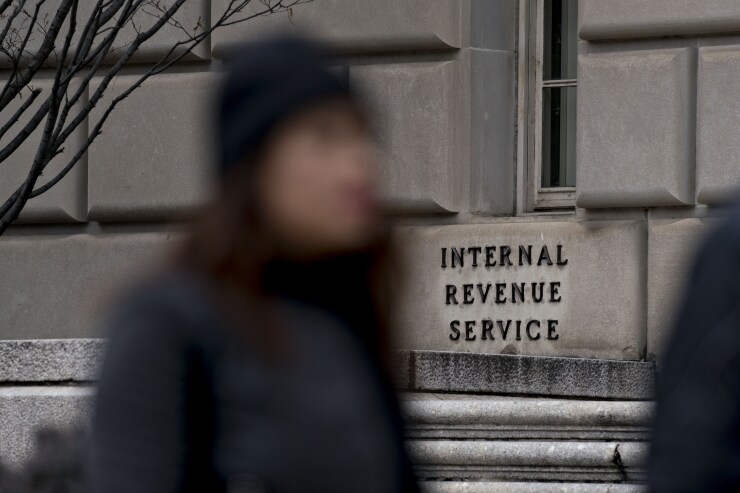The Internal Revenue Service is in the process of revising dozens of tax forms and developing tax regulations to implement the Inflation Reduction Act, according to a new report.
The
President Biden signed the bill into law in August, and it includes 38 provisions affecting the IRS, including clean energy tax credits that are administered by the IRS and affect individual, small business, and corporate taxpayers. On Tuesday, at the World Economic Forum in Davos, Switzerland, International Energy Agency director Faith Birol called it "the most important climate action after the 2015 Paris agreement," according to

TIGTA initiated its review to assess the IRS's development of processes and procedures to monitor, measure and track implementation efforts of all the tax-related provisions in the Inflation Reduction Act. The legislation authorizes a nearly $80 billion funding increase for the IRS over the next 10 years, through Sept. 30, 2031, to help improve taxpayer service, update its computer systems, and increase compliance and enforcement actions against high-income taxpayers and large corporations. Treasury Secretary Janet Yellen is requiring the IRS to produce an operational plan by Feb. 17, 2023, that's supposed to include details on how resources will be spent over the next decade on technology, service improvement and personnel.
"This Plan is key to ensuring that the public and Congress are able to hold the IRS accountable as it pursues needed improvements," said the report. "To that end, the Plan must include metrics for areas of focus and targets over the course of the coming years that the agency will strive to achieve."
House Republicans passed legislation last week to repeal the portion of the funding devoted to increasing tax enforcement, but it is not expected to advance in the Senate, which is still controlled by Democrats (
Yellen outlined a set of expectations for the IRS for this filing season to ensure taxpayers will see real changes under the new law. The filing season improvements include:
- Staffing each of the IRS's 361 Taxpayer Assistance Centers;
- Improving the level of telephone service from approximately 15% to 85% and reducing average wait time from nearly 30 minutes to 15 minutes;
- Automating the scanning of millions of individual paper tax returns; and,
- Providing taxpayers the ability to receive and respond to notices online.
TIGTA said actions are being taken to meet those expectations. After enactment of the Inflation Reduction Act, TIGTA found the IRS immediately began the big task of implementing the legislation. The IRS created an IRA Transformation and Implementation Program Office, which is responsible for strategically coordinating activities across the agency to develop the operational plan. The program office is also responsible for engaging with officials in the IRS and Treasury Department stakeholders, monitoring the implementation of tax provisions in the legislation, and coordinating the organizational transformation efforts the IRS plans to undertake over the next decade. The program office is also working closely with the IRS CFO's office regarding the tracking and accountability over appropriation funding.
There are a number of challenges, however, the report noted. The IRS has a goal of filling approximately 19,000 positions in fiscal year 2023, but representatives from the IRS's human capital area indicated that realistically the net gain of employees will be closer to 5,000 to 10,000 as many of the new hires will be offset by separations. A continuing challenge the IRS faces is needing to evaluate a high number of applicants in order to find successful candidates who are willing to accept the job offer and able to pass the required background checks.





